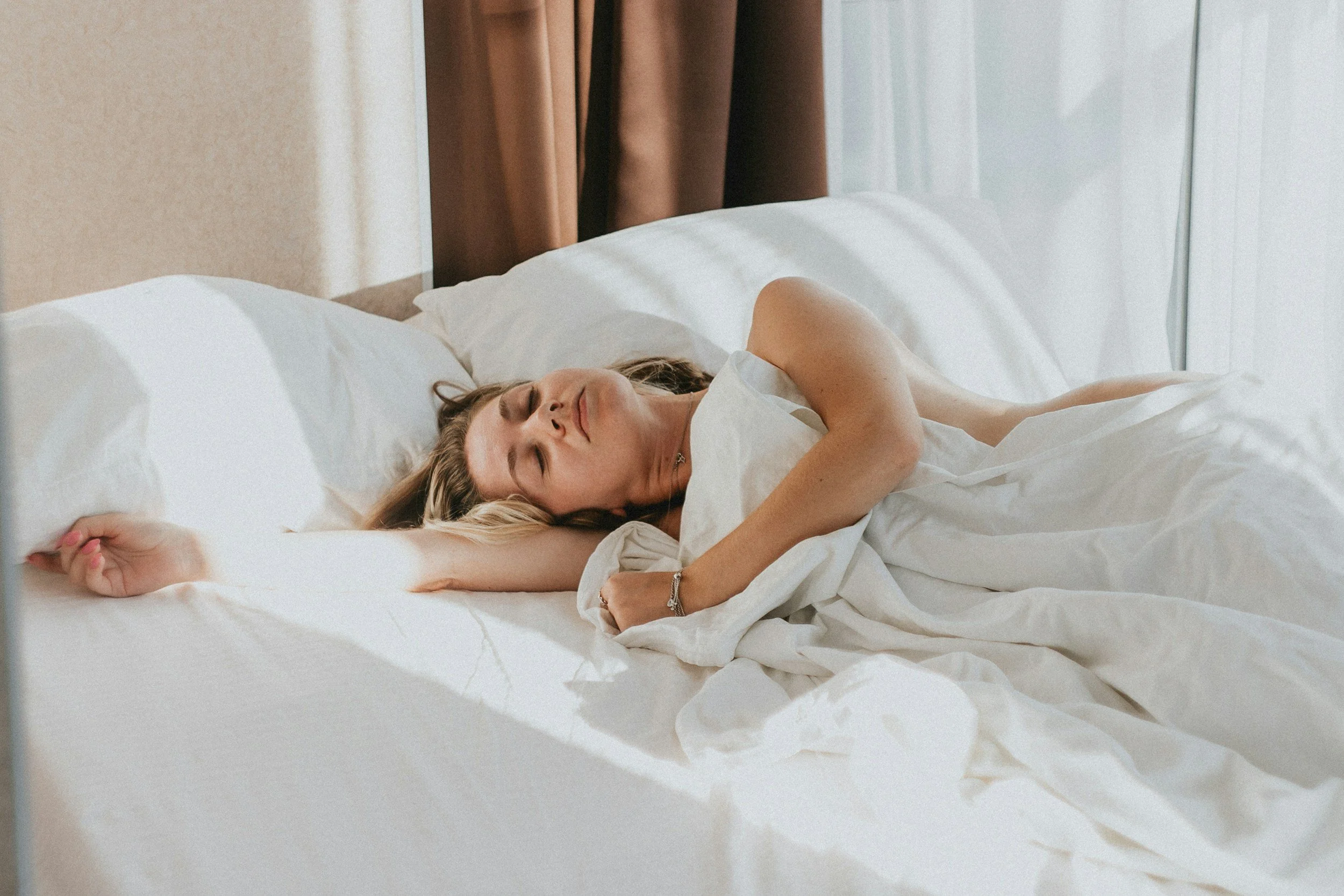6 tips to reduce anxiety and have better sleep
1. Try Vagal Toning
Your vagus nerve helps regulate stress by signaling safety to your body. A few minutes of humming, chanting, singing, or even gargling can gently stimulate this nerve and help your system settle. It may feel silly at first, but it works—especially if done daily.
2. Keep a Consistent Sleep-Wake Schedule
Going to bed and waking up at the same time each day (yes, even on weekends) helps your body get into a natural rhythm. This consistency can reduce anxiety and make it easier to fall—and stay—asleep.
3. Follow Sleep Hygiene Tips from CBT-I
Cognitive Behavioral Therapy for Insomnia (CBT-I) offers some solid advice:Use your bed only for sleep and sexIf you’re awake for more than 15–20 minutes, get up and do something relaxing until you’re sleepy againStick to your bedtime and wake-up time, even if sleep was rough the night beforeThese habits help your brain associate bed with rest instead of restlessness.
4. Create a Wind-Down Routine
Give yourself a quiet, screen-free hour before bed. Dim the lights, read something gentle, journal, stretch, or take a warm shower. Your nervous system needs time to shift out of go-mode. Also: aim for a cool, dark room—it really does help.
5. Practice Gentle Nervous System Regulation
Even just 5–10 minutes a day of slow breathing, progressive muscle relaxation, or light stretching can make a noticeable difference in how grounded you feel. These small practices help your body let go of tension and prepare for rest.
6. Cut Back on Caffeine and Alcohol
Caffeine (even that afternoon matcha) can trigger anxious feelings and linger in your system longer than you think. Alcohol might make you sleepy, but it disrupts deeper stages of sleep and can lead to middle-of-the-night wakeups.
